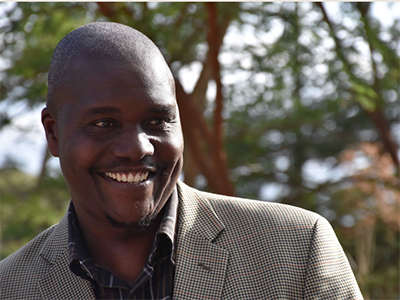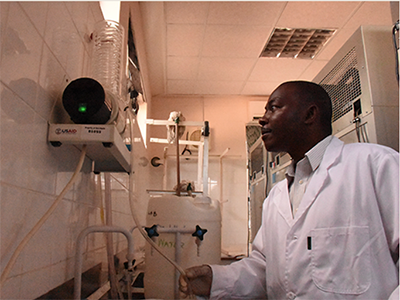Despite being preventable and curable, malaria continues to ravage Africa. According to the World Health Organization, young children are the most vulnerable, with 67% of all malaria deaths worldwide. The WHO African Region carries a disproportionately high share of the global malaria burden. In 2019, the region accounted for 94% of malaria cases and deaths.
Africa University is determined to change that statistic, and thanks to two new grants, it may succeed.

Your support of the Africa University Fund apportionment supports the general operating expenses of Africa University including faculty and staff salaries and vital infrastructure.
“We were fortunate to receive the USAID Zimbabwe Entomology Support Program in Malaria ((ZENTO), $1.5 million over three years), and the National Institutes of Health (NIH) K43 Emerging Global Leader Award, $500,000 over five years,” said Dr. Sungano Mharakurwa, dean of the College of Health, Agriculture and Natural Sciences at Africa University. USAID is a premier international development agency and a catalyst driving development results, while NIH is a U.S. medical research agency, supporting scientific studies.

A doctoral malariologist serving in Zimbabwe, Mharakurwa undertook his Doctor of Philosophy and postdoctoral training at Oxford University in the U.K. with support from the Beit Trust and Beit Memorial Fellowship funding. Now in his seventh year at Africa University, he is excited about the implications of the new grants for addressing malaria and other health issues.
The ZENTO program, he noted, aims to establish a malaria entomological center of excellence at Africa University, leveraging on the capacity built incrementally over the years through a malaria surveillance partnership with the Ministry of Health and Child Care and its malaria-control partners USAID President’s Malaria Initiative VectorLink Project and the Zimbabwe Assistance Program in Malaria, both led by Abt Associates.
Mharakurwa also received the NIH Emerging Global Leader Award, a competitive grant given to scientists with strong training, research and publication records. This award will enable him to attain his vision to become a global malaria translational research leader and innovator based at AU. It will afford a strong opportunity to establish vibrant international collaboration; regional training programs; and undergraduate, graduate and postdoctoral learning and research. Thus, the K43 will catapult research and innovation at AU.
Mharakurwa pointed out that Africa University is among a few educational institutions in the region to contribute to policy-changing malaria research and innovation such as the mosquito blanket.
“AU has a competitive position,” Mharakurwa said. Its role through the K43 award will be to provide competitive research for solving urban malaria emergence.
“By establishing the center of entomological excellence and conducting entomological surveillance in mandated districts,” he said, “ZENTO will foster frontier research and innovation that may open opportunities for more such grants in the near future. ZENTO will position AU to build district-, national- and regional-level entomological capacity through its new center of excellence and strong local and international partners.
“By honing career development of the principal investigator and undertaking international collaborative research, the K43 grant will help leap-frog Africa University's possibilities to attract more and/or larger NIH grants of various types,” Mharakurwa said.
excerpt from a story by Barbara Dunlap-Berg, a freelance writer and editor, based in Carbondale, Illinois.
One of seven apportioned giving opportunities of The United Methodist Church, the Africa University Fund transforms Africa by educating and empowering students from across the continent through Africa University, the first fully accredited, United Methodist-related educational institution on the continent. The Africa University Fund supports the general operating expenses of Africa University including faculty and staff salaries and vital infrastructure. Please encourage your leaders and congregations to support the Africa University Fund at 100 percent.





